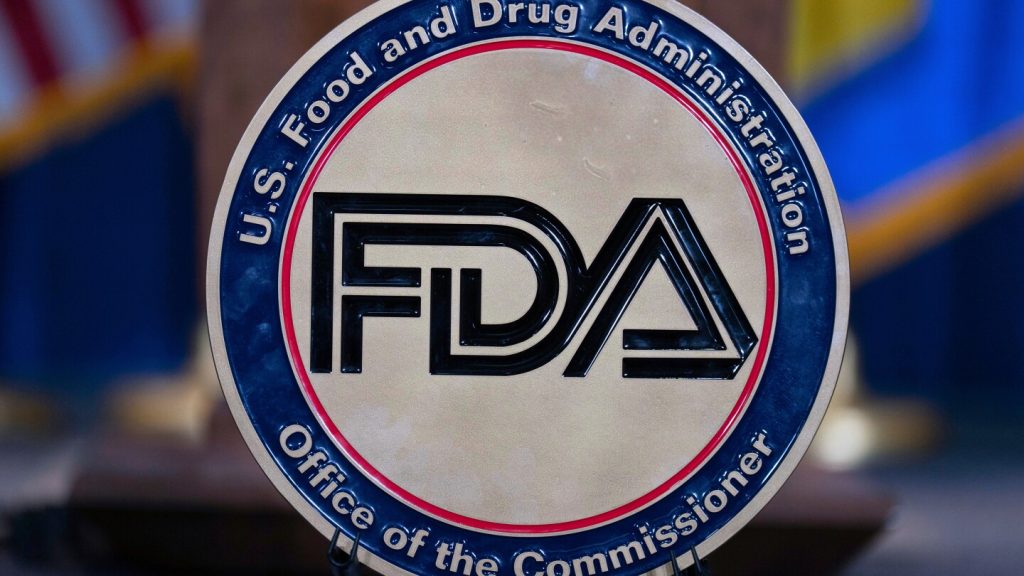Listen to the article
Health officials across the United States are investigating 13 cases of infant botulism linked to contaminated baby formula, prompting an urgent recall by manufacturer ByHeart Inc., federal agencies announced Saturday.
The Food and Drug Administration confirmed that ByHeart has agreed to recall two specific lots of its Whole Nutrition Infant Formula after all 13 affected infants required hospitalization. The contaminated products have been identified with lot numbers 206VABP/251261P2 and 206VABP/251131P2.
Cases have been reported across ten states, including Arizona, California, Illinois, Minnesota, New Jersey, Oregon, Pennsylvania, Rhode Island, Texas, and Washington. While no deaths have been reported so far, the investigation remains active as authorities work to determine the source of contamination and whether additional products might be affected.
The recall comes at a sensitive time for the infant formula market, which has faced significant supply challenges in recent years following previous contamination issues and factory shutdowns. ByHeart, while smaller than industry giants like Abbott and Mead Johnson, has positioned itself as a premium formula option for parents seeking clean-label alternatives.
According to the Centers for Disease Control and Prevention, the affected product represents approximately 1% of national formula sales. The formula was widely available through online retailers and major brick-and-mortar stores across the country.
“We’re working with state health departments to ensure all affected products are removed from shelves,” said an FDA spokesperson. “Our priority is preventing any additional illnesses while determining exactly how this contamination occurred.”
Parents who have purchased the recalled formula should check lot numbers carefully. Health officials advise recording the lot number before disposing of the product or returning it to the place of purchase for a refund. Additionally, thorough cleaning of any items or surfaces that came in contact with the formula is essential, using either a dishwasher or hot, soapy water.
Infant botulism is a serious illness caused by Clostridium botulinum bacteria, which can produce toxins in a baby’s intestinal tract. Unlike foodborne botulism in adults, infant botulism occurs when babies ingest bacterial spores that then colonize and produce toxin in their digestive systems.
“The concerning aspect of infant botulism is that symptoms can take weeks to develop after exposure,” explained Dr. Elizabeth Hoffman, a pediatric infectious disease specialist not involved in the current investigation. “This makes it particularly important for parents to remain vigilant even if their child seems fine immediately after consuming potentially contaminated formula.”
Parents should seek immediate medical attention if their infant has consumed the recalled formula and exhibits symptoms including poor feeding, decreased facial expression, difficulty swallowing, constipation, generalized weakness, or loss of head control.
The infant formula industry has been under heightened scrutiny since 2022, when supply chain disruptions and a major recall by Abbott Nutrition created nationwide shortages. This latest recall, while more limited in scope, highlights ongoing food safety challenges in the sensitive infant nutrition sector.
ByHeart, founded in 2016, entered the U.S. formula market in 2022 after developing its own supply chain and manufacturing facility. The company had positioned itself as the first new FDA-registered infant formula manufacturer in decades, emphasizing transparency and quality in its production process.
As of Saturday, ByHeart representatives had not responded to requests for comment regarding the contamination or recall process. The FDA indicated that its investigation would include a thorough examination of the company’s manufacturing practices and supply chain to identify potential vulnerabilities.
Health officials emphasized that parents who cannot determine if their formula is affected should consult with their pediatrician about suitable alternatives rather than attempting to make homemade formula, which poses significant health risks to infants.
Fact Checker
Verify the accuracy of this article using The Disinformation Commission analysis and real-time sources.




9 Comments
This is a concerning situation. Infant botulism can be very serious, so I’m glad the FDA is investigating promptly and the company is recalling the affected lots. Hopefully they can determine the source of the contamination quickly to prevent any further cases.
I agree, it’s crucial that they get to the bottom of this issue. Contamination in baby formula is always alarming and can have devastating consequences.
This is a very serious situation. Botulism is an extremely dangerous type of food poisoning, especially for infants. I hope the investigation can quickly determine the source of the contamination to prevent any further illnesses. The recall seems appropriate, but more transparency from the company and regulators would help reassure concerned parents.
I agree, full transparency is critical here. Parents deserve to know exactly what went wrong and what steps are being taken to ensure their babies’ safety. Clear communication from all parties involved will be key.
Wow, this is scary. Thirteen hospitalized infants is a very high number. I’m glad the company is recalling the affected lots, but this raises broader questions about regulatory oversight and quality assurance in the formula industry. Hopefully this leads to more robust safety measures going forward.
Good point. With the formula shortages we’ve seen, there may have been some cutting of corners that compromised safety. Rigorous inspections and testing need to be the top priority, no matter the supply pressures.
This is really troubling news. Infant formula should be the safest, most rigorously tested product, so it’s worrying to see such a serious issue arise. I hope the authorities are able to identify the root cause and ensure all contaminated products are removed from the market.
Absolutely. The supply chain challenges the formula industry has faced in recent years only heighten the need for the utmost safety and quality control. Lapses like this erode public trust.
This is a very troubling development. Infant formula should be one of the most tightly regulated and rigorously tested consumer products, so to see multiple cases of botulism linked to a specific brand is deeply concerning. The FDA and the company need to get to the bottom of this quickly and take all necessary steps to protect public health.